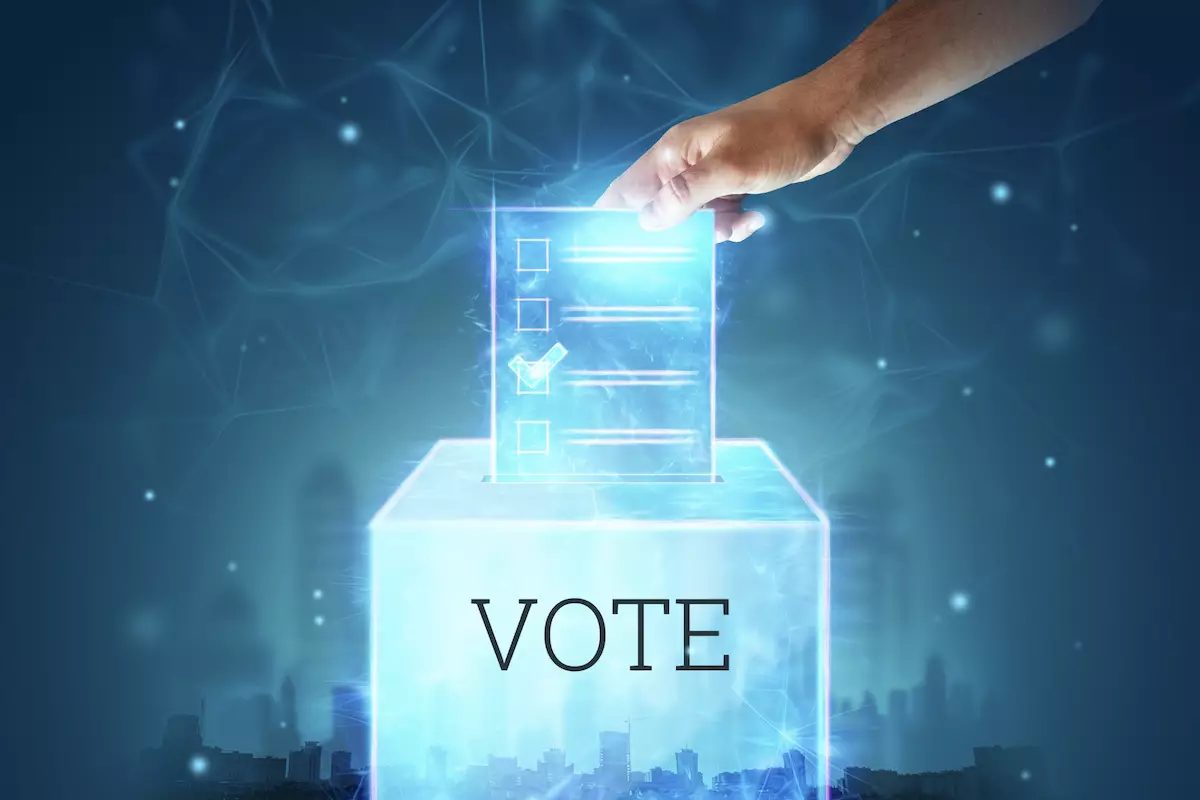Blockchain technology is widely celebrated for its potential to transform various sectors, and democracy is no exception. The notion of implementing blockchain in electoral systems has become a focal point of discussion among policymakers and tech enthusiasts alike. This exploration of blockchain voting reveals its advantages, challenges, and future implications for democratic processes.
At its core, blockchain voting employs a decentralized digital ledger to record votes securely. This technology promises a level of transparency and security that traditional voting methods struggle to achieve. In systems lacking transparency, voter trust is often compromised. By utilizing blockchain, every vote is recorded in a tamper-proof manner, which, proponents argue, could restore faith in electoral outcomes. The excitement surrounding blockchain voting has prompted several countries, including Romania, to integrate this technology into their electoral processes as a bold experiment.
Perhaps the most compelling advantage of blockchain voting is its transparency. Since votes are recorded on a decentralized ledger, voters can observe the process in real-time. Romania’s upcoming 2024 presidential elections serve as a practical illustration; citizens will have the ability to track vote counts instantly, confirming that their ballots have been securely processed. This real-time tracking can foster confidence among voters, particularly in regions notorious for corruption.
Moreover, the issue of accessibility is pivotal in the conversation about democratic participation. For those with disabilities or those living in remote areas, getting to polling places can be a significant barrier. Blockchain makes the prospect of online voting feasible, permitting individuals to cast their votes from the comfort of their homes. This convenience could increase voter turnout, which is critical for a healthy democracy.
Cost efficiency is another aspect often highlighted in favor of blockchain voting. Traditional electoral processes require substantial resources, from setting up polling stations to managing paper ballots. By eliminating these needs, blockchain technologies could streamline operations, ultimately saving taxpayers money while expediting result reporting.
Despite these advantages, blockchain voting is not without significant hurdles. Security concerns loom large; while the blockchain itself is designed to be resilient against tampering, the overall voting process can still be vulnerable. For example, votes may be susceptible to manipulation before they even reach the blockchain, and cyber-attacks could pose a substantial risk. These vulnerabilities raise questions about the integrity of elections conducted via blockchain technology.
Another critical challenge is ensuring voters can verify their ballots while maintaining privacy. Voters should feel assured that their votes are accounted for, yet they should not have to endure the scrutiny of how they voted. Striking a balance between verification and confidentiality is essential to maintain voter trust.
Furthermore, the transition to blockchain voting necessitates significant investment. Countries will need to build new technological infrastructures, train election officials, and educate the public about these systems. This financial and logistical burden could be daunting, particularly for nations grappling with existing electoral challenges.
Romania is setting an example of how blockchain voting can manifest in real-world scenarios. Their initiative in the upcoming 2024 elections illustrates that blockchain voting is not just a theoretical idea but a practical application. By linking their system with the European Blockchain Services Infrastructure, Romania is paving the way for a more interconnected and transparent electoral framework across borders.
In addition, innovative concepts such as Soulbound NFTs (SBTs) may offer new solutions for voter identification and accessibility. By issuing non-transferable digital tokens as voter IDs, election bodies could enhance security measures and ensure that only eligible individuals are allowed to vote. These SBTs might also facilitate secure online voting, making it easier for individuals to participate in elections.
While these ideas present exciting potential, they also come with their own challenges, particularly regarding privacy concerns and implementation costs.
The discourse surrounding blockchain voting highlights both promise and peril. While the technology can radically alter democratic participation by increasing transparency and accessibility, the accompanying challenges must not be overlooked. As demonstrated by Romania and other experimental cases, deploying blockchain in voting systems is complex and requires thorough consideration.
Realistically, the path forward demands meticulous planning, thorough testing, and ongoing engagement with the electorate to establish trust. Blockchain voting could redefine democracy as we know it. However, the extent to which it can overcome inherent risks and operational challenges will determine its long-term viability in the electoral landscape. With advancements in technology and varied implementations, the future of voting may indeed rest in the hands of blockchain.

